Google’s algorithm has moved far past from only understanding simple keyword alignment, it can recognize “things” as it previously stated in a blog post published in 2012 about this very concept. Does this mean that Google has been paying attention to entities for over 10 years? Yes, indeed, it does.
If this concept has been known for over a decade, why are SEOs all of a sudden focused on this concept? You may have heard about this thing called Answer Engine & AI summary search. Traditional SEO didn’t focus much on entities as they could impact SEO alignment.
With the release of new AI search functions, Google is looking for real-life examples in content as a way to associate the information it’s reading with concepts found outside of your website. AI search features prioritize topics over keywords, to understand topics, you need to connect entities making this crucial for SEO optimization and search engine alignment.
Here’s what you’ll learn from this blog post:
- What Entities Are & Real-World Examples
- The Importance of Entities in SEO
- How To Optimize for Entities in Search
Future Proof Your SEO
What is a Google Entity?
A Google entity in SEO is defined as something that exists as itself, this could be a physical object, an idea, or business or organization. Entities are not keywords, keywords may trigger an entity to populate in search results but Google’s understanding of these concepts go beyond just a keyword or a single search.
Keyword searches trigger results that Google has deemed well-aligned to the user intent. Entities shown in search results are a delivery of a specific record Google has built for a person, place, thing, or idea. Most of these are shown in the form of a Knowledge Panel and pulled from Google’s vast index of Knowledge graphs.
Knowledge Panel: Google’s knowledge panel is on the right side of the SERP on desktop and summarizes information about entities. This feature provides the user with a quick snapshot of key information about the subject.
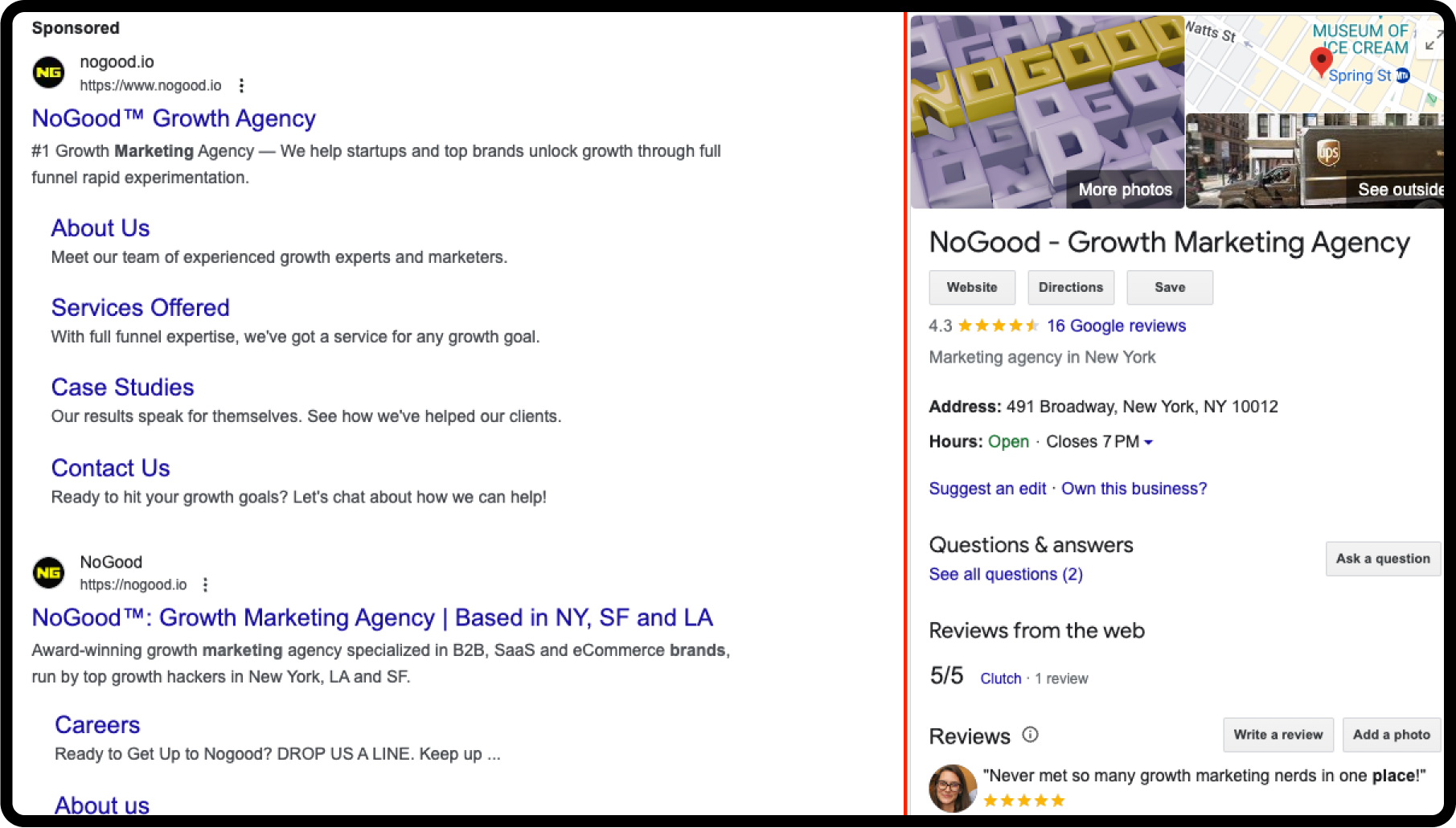
Knowledge Graph: Knowledge graphs are massive collections of data that act as a map of a topic for Google. These information hubs allow Google to understand how one topic is connected to another and how important those relationships are to searchers.
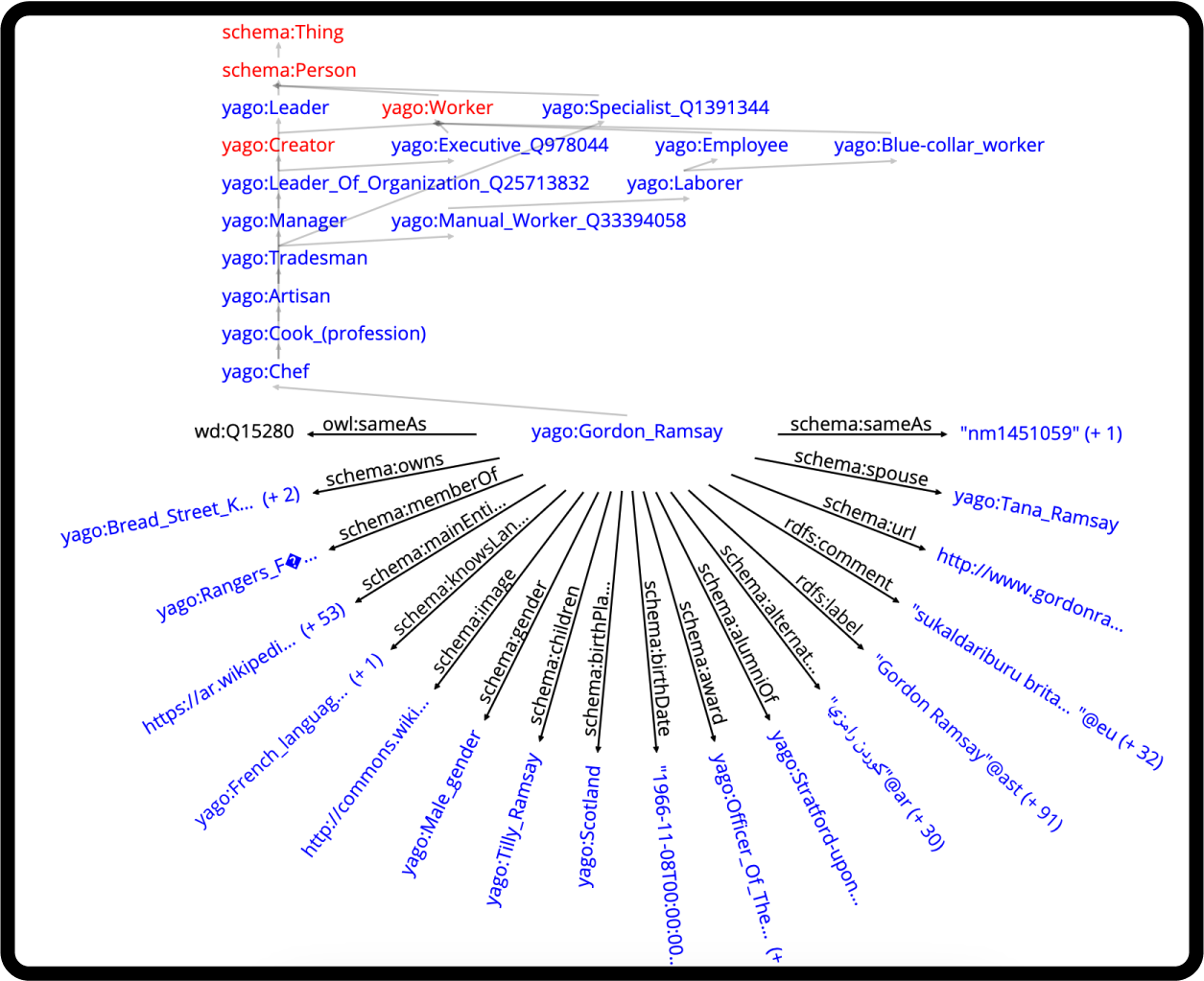
3 Entity Examples
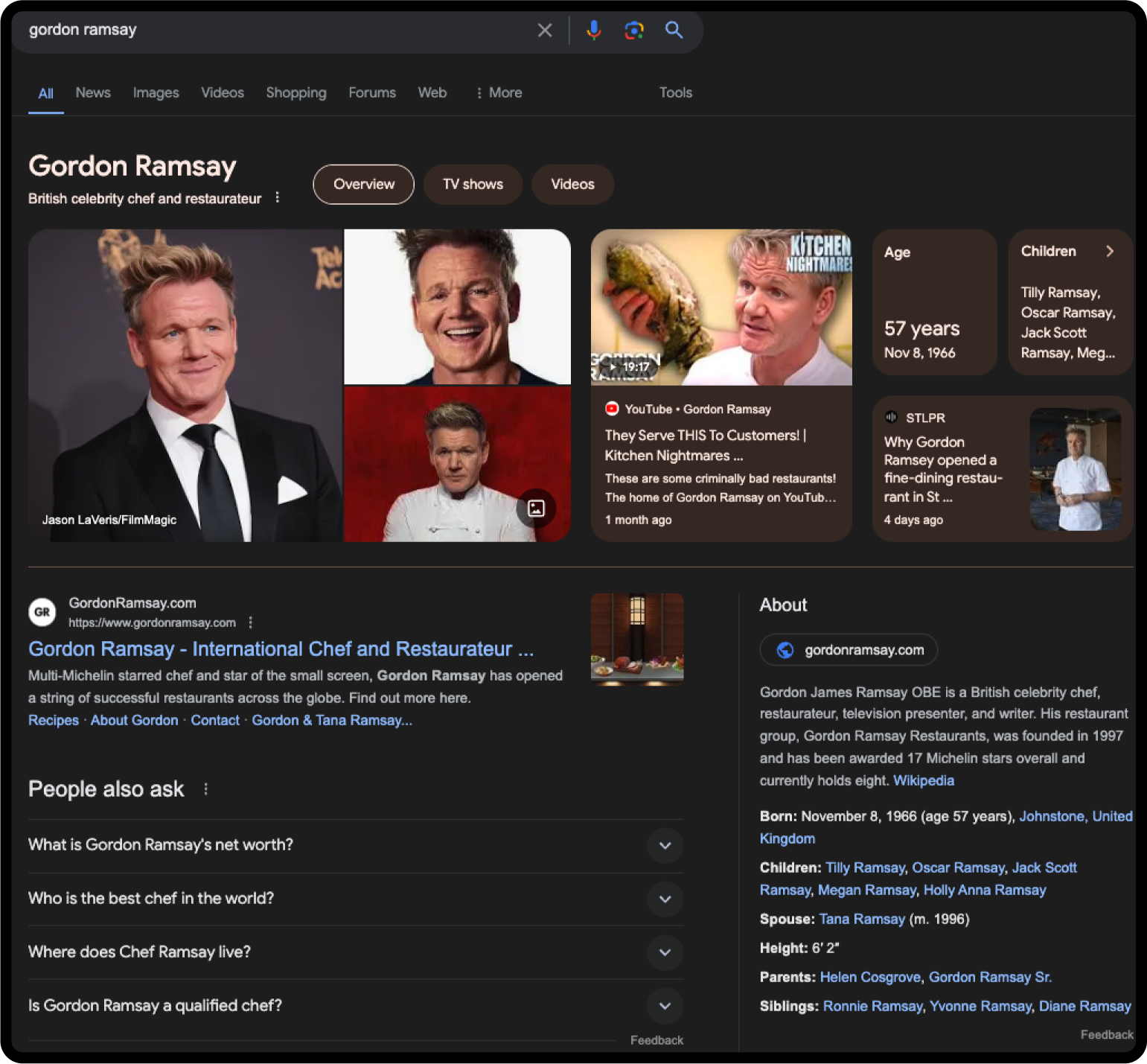
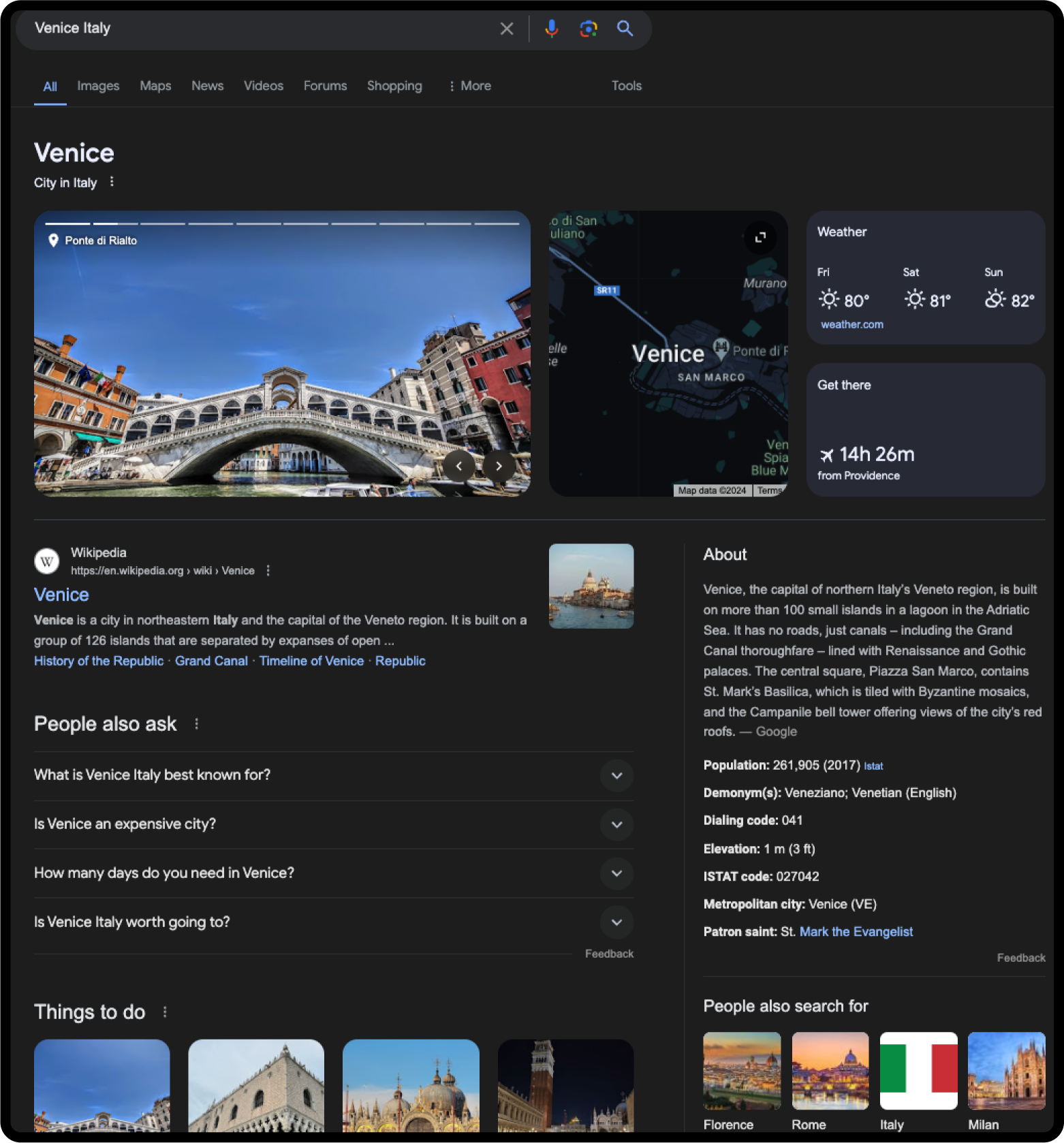
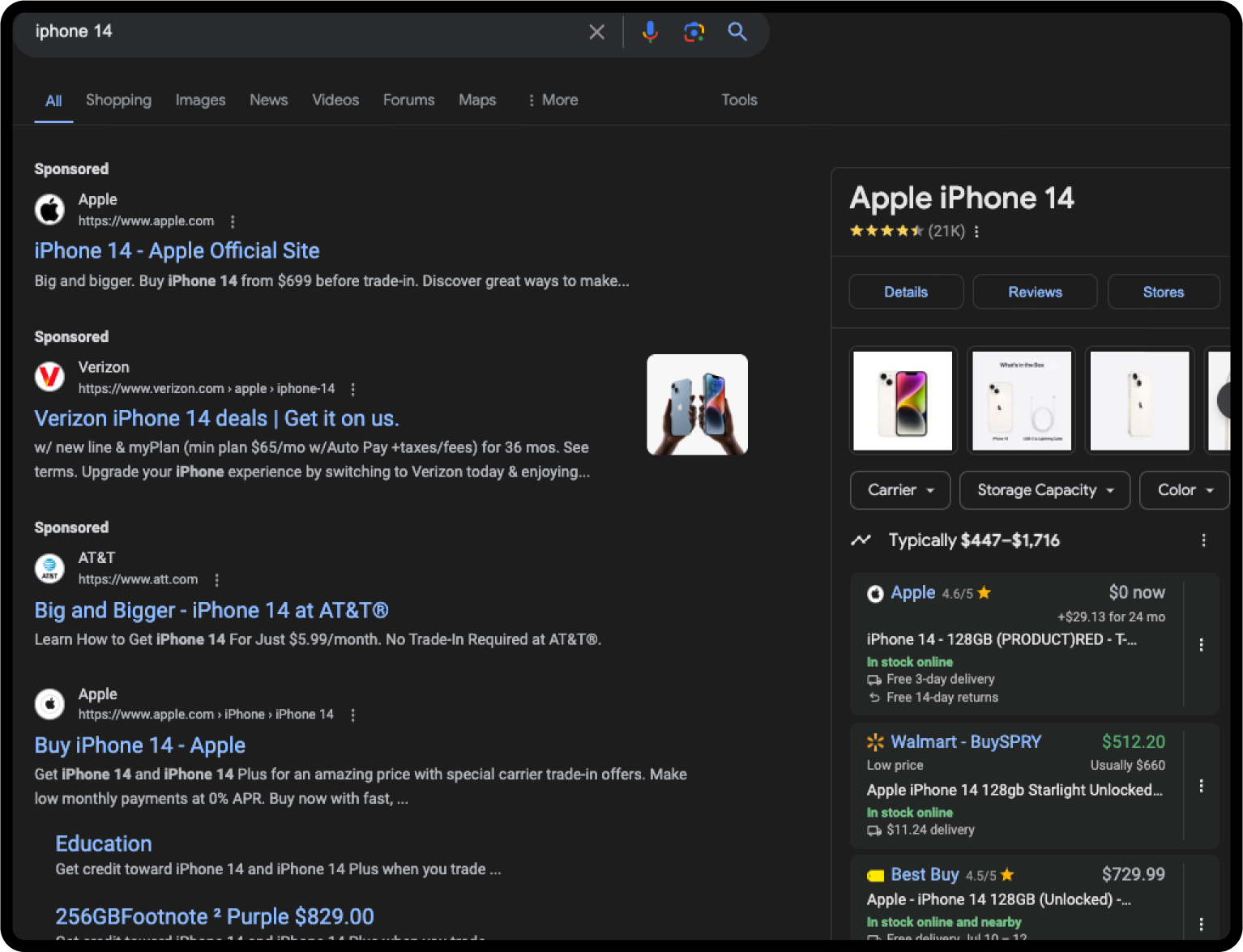
Why Are Entities Important?
Entities and their relationships are increasingly important when it comes to building your content. Search and SEO has moved farther away from simple keyword optimization and keyword density and secondary term inclusion isn’t enough to cut through the clutter of search.
Including relevant entities in your content is only going to improve your chances of getting noticed and ranked highly by Google. But why?
- Understanding Context: Entities provide context to search engines and often times are looking for mentions of specific entities to ensure your content has all the relevant information to be ranked accordingly. Having these included in your content allows Google to serve real-world information that accurately reflects relationships and supplementary information.
- Improved Relevancy: Entity inclusion ties your content to other ideas much like secondary and semantically related keywords bridge the gaps between your primary keyword. Relevancy is the name of the game especially when it comes to AI search. Having enough relevant information can assist with Google including your results in AI summaries.
- Answer Engine Optimization (AEO): Speaking of AI search summary and AEO, entities help these models summarize your content accurately, making your website a great source for answers. The better connected you can make your content to both entities and providing quick question-answer formats will only improve your ranking chances.
- Knowledge Graph Power: Google’s Knowledge Graph is a massive network of entities and their relationships. By optimizing for entities, you can potentially influence how your website is represented within the Knowledge Graph, increasing your visibility in search results.
How To Optimize For Entities
Use of natural, human-like language is the most important aspect of creating any new page or blog post. The following suggestions should be understood but don’t treat them as strict rules. These guidelines are best practices but your goal should remain to write for the user, not the search engine.
1. Semantically Related Keywords & Frequency
Mentioning the entity early on in your article or page can help search engines, and users quickly understand the relevance and relationship of the topic. Including relevant entities at the beginning of your content will help users get a topical understanding of the topic you’re writing about.
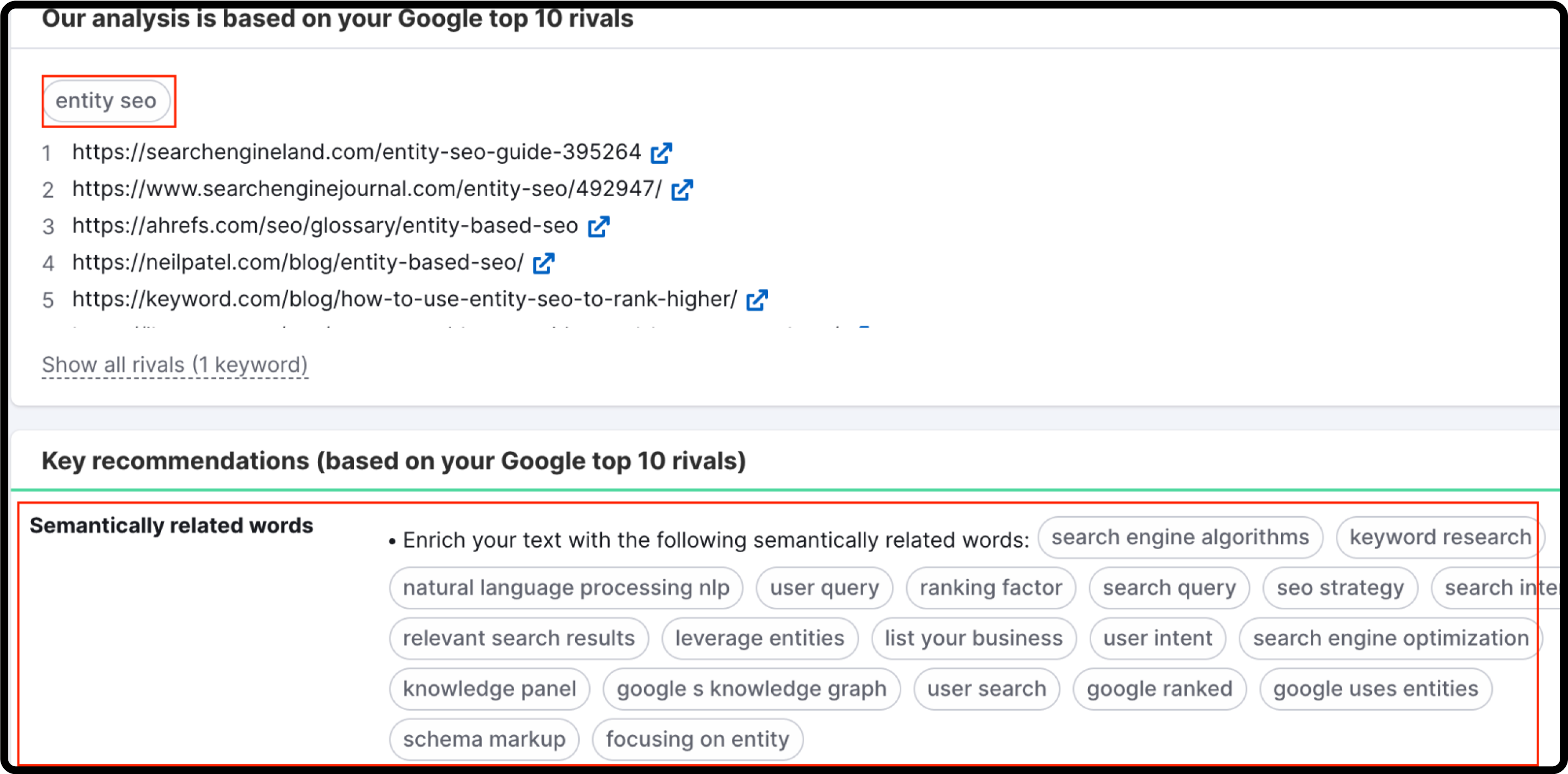
Secondly, you’ll want to focus on semantically related keywords. These keywords are related to your primary keyword without directly referencing it. These play a big role in bridging the gap between your main topic and the subsequent topics associated with it. Including these concepts isn’t just a good idea to generate a holistic idea; it helps search engines connect the dots between concepts.
2. Content Structure & Organization
Content structure and organization has always been an important thing to look at when developing content. Anticipating the user’s needs is the best way to get a better understanding of how your content should be organized. Understand what information needs to be up front for the user. What are things they have to know before understanding the larger concept?
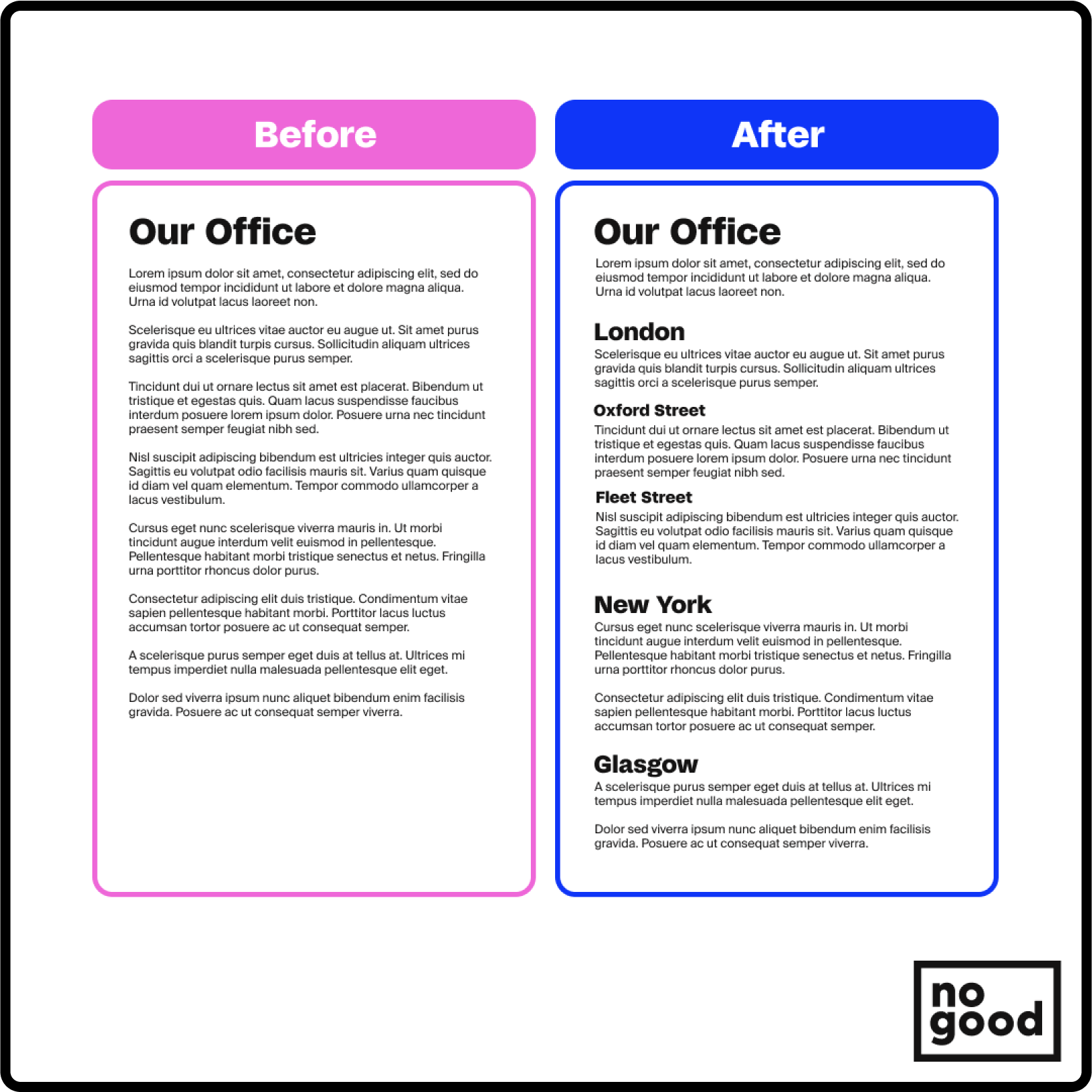
Remember that you facilitate the journey and the way you structure your content could certainly help but it can also be a page’s downfall. It goes without saying that you should separate your content with clear, concise and descriptive headers, but you should also view these are a means to communicate entity relationships.
3. Internal Linking & Building Your Entity Network
Depending on the type of content you’re building on your site, having access to deep dive pages on entities to link out to is a common practice. The best way to provide and connect information is to have it natively on your site and provide a path forward for both users and search engines to explore.
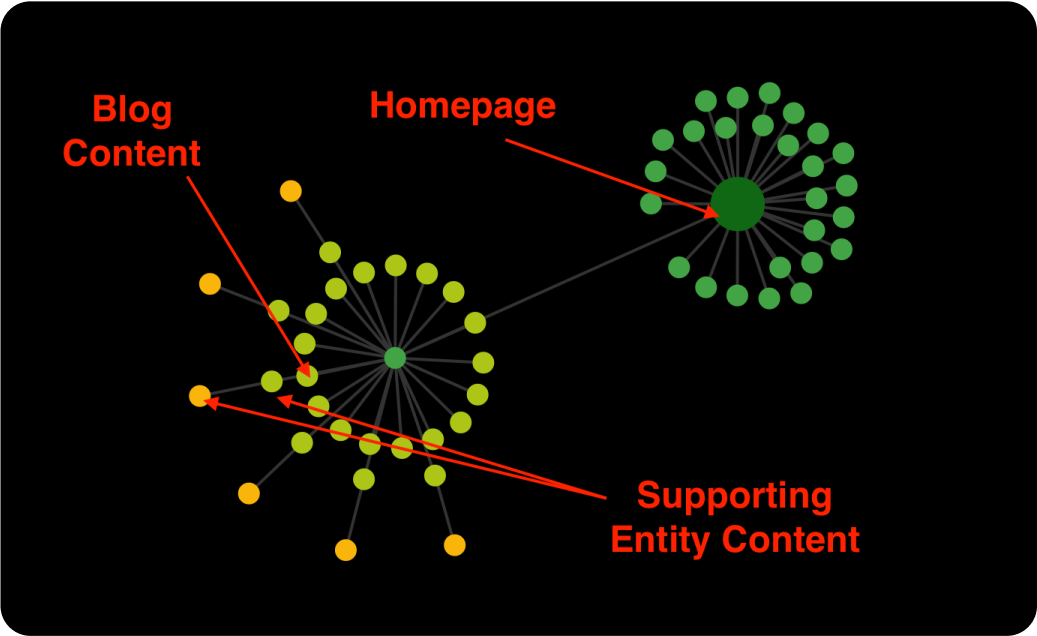
If you don’t have a related internal connection to make, an external link can be used. While this has been seen as “giving away authority” Google wants you to focus on providing value, even if that value is found on a different site.
4. Structured Data
Structured data has long been the method for highlighting key information for Google in a sea of complexity. This remains true for entity SEO. Below is an example of entity-structured data for Albert Einstein.
| <script type=”application/ld+json”> { “@context”: “https://schema.org”, “@type”: “Person”, “name”: “Albert Einstein”, “description”: “A theoretical physicist who developed the theory of relativity, one of the two pillars of modern physics (alongside quantum mechanics).”, “born”: “1879-03-14”, “died”: “1955-04-18”, “nationality”: { “@type”: “Country”, “name”: “Germany” }, “fieldOfStudy”: [ { “@type”: “FieldOfStudy”, “name”: “Physics” }, { “@type”: “FieldOfStudy”, “name”: “Mathematics” } ], “knownFor”: [ “Theory of relativity”, “Mass-energy equivalence (E = mc²)” ], “image”: “https://www.example.com/images/albert_einstein.jpg” } </script> |
Providing structured data for an entity, you provide a clear understanding and connection to the topic. By clearly defining these details, Google is more likely to associate your content with the person, place, thing or idea. Not only will this help with relevance, having this type of structured data on the page can make your results more favorable for voice search.
Concentrate On Content Connections
Entity SEO is less about which keywords you use and more about the connections and relationships you make across the web. Simply writing about these topics can help you draw a line between them and your business but there’s more that can be done. Providing clear pathways for users and search engines to learn more about a subject from your content is key. Having a deep understanding of a topic is what Google is looking for.
Be sure to focus on how you deliver your content to both users and search engines. Make sure the concepts are delivered in a manner that sets up the user for success and information retention. Elevate key aspects of your content with Schema so search engines have an easier time understanding your content. Above all, make sure you take the human approach to educating your audience and put the user above the search engine.




